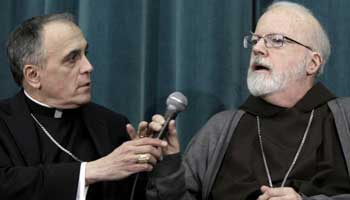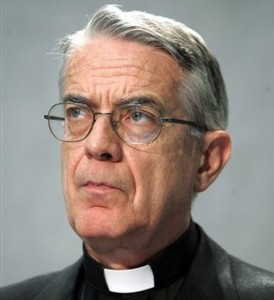The American cardinals have suspended daily press conferences in Rome during the General Congregations at the request of the entire College of Cardinals.
“A little less conversation, a little more action, please.
All this aggravation ain’t satisfactionin’ me.”
According to the U.S. Conference of Bishops, the Cardinals thus followed a request of the College of Cardinals, which currently meets in Rome to discuss the situation of the Catholic Church and to prepare for the election. The College of Cardinals has thus highlighted the confidentiality of the interview content.

The Vatican did not comment on the decision. However, spokesman Federico Lombardi noted that Cardinals from other countries had not held such press conferences. Lombardi said that the decision of the Americans did not surprise him. There is a general need for “utmost restraint” in the run-up to the Conclave. Earlier, reports of discussions between Cardinals from the United States, Germany and Italy about the Conclave and the papal elections were surfaced in Italian media.

 The conclave to choose the successor to Pope Benedict XVI. will take place 15 to 20 days after the beginning of the interregnum, after the resignation of Joseph Ratzinger on February 28. “If everything goes smoothly, it can be assumed, that the Conclave begins on the 15th of March”, the Vatican spokesman Father Federico Lombardi said on Wednesday at a press conference.
The conclave to choose the successor to Pope Benedict XVI. will take place 15 to 20 days after the beginning of the interregnum, after the resignation of Joseph Ratzinger on February 28. “If everything goes smoothly, it can be assumed, that the Conclave begins on the 15th of March”, the Vatican spokesman Father Federico Lombardi said on Wednesday at a press conference.